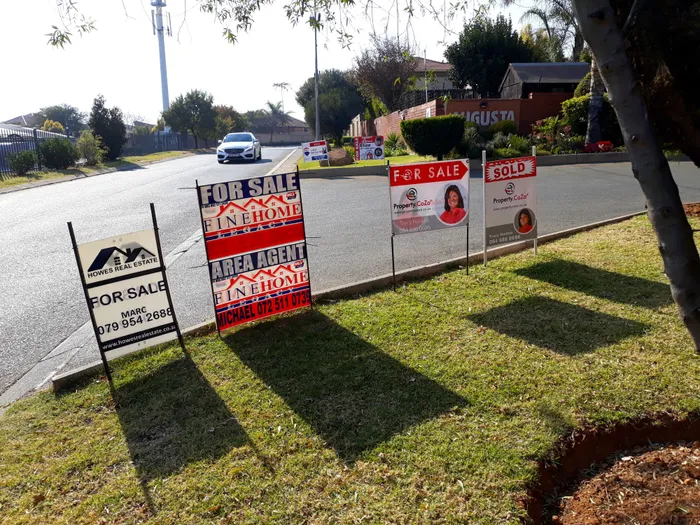How rising house prices are squeezing South African buyers

More South African estate agents warn that house prices are outpacing incomes, as rising numbers of buyers turn to personal loans despite signs of improving consumer conditions.
Image: Karen Sandison / Independent Newspapers
A growing number of South African real estate agents say that incomes have not kept pace with house prices, which comes as an increasing number of South Africans resort to personal loans – despite improving consumer conditions.
According to the FNB Estate Agents Survey, 24.5% of agents reported in the second half of 2021 that incomes had fallen “far behind” house prices at the start of the interest rate hiking cycle.
That figure rose to 39% in the second half of 2024, at the start of the current interest rate cutting cycle, and has since climbed to 44% in the second quarter of 2025.
This trend shows that house price growth, which has outstripped inflation, is offsetting real income gains for many potential buyers, FNB’s survey said. Persistent affordability challenges partly explain the slow recovery in mortgage lending, even as financial conditions ease.
“Buyers are increasingly turning to smaller, more cost-effective housing options, such as apartments,” while carefully considering how to finance their purchases, said FNB.
Agent views are based on a sample of potential buyers, not a comprehensive look at all consumers.
These findings are echoed in recent pay trends. Nominal take-home pay in South Africa fell in July 2025, according to the BankservAfrica Take-home Pay Index (BTPI), which tracks salaries of around 3.8 million earners.
“The nominal average take-home pay reached R17 144 in July 2025, 1.1% lower than the R17 339 reflected in June 2025 and a significant 6.9% lower than in February 2025,” said Shergeran Naidoo, BankservAfrica’s Head of Stakeholder Engagements.
While salaries have recovered since the weak years between 2021 and 2023, they have not fully caught up. Inflation is forecast to average 3.5% in 2025, compared with 4.4% in 2024, while industry sources indicate average salary increases above 5%, marking the second consecutive year of real earnings growth.
Yet higher living costs continue to weigh on households. “This impact is felt more sharply in July – the month notorious for annual municipal tariff increases – and serves as a stark reminder that some costs continue to rise well above the country’s inflation rate,” said independent economist Elize Kruger.
In real terms, take-home pay fell 0.9% month-on-month to R14 660 in July, down from R14 798 in June, though it remains above year-ago levels.
Overall, the survey and salary data together suggest that South African buyers, particularly first-timers, are adopting more strategic and financially responsible strategies.
The survey was conducted before the latest interest rate cut and the South African Reserve Bank’s shift in long-term inflation preference from 4.5% to 3%, so third quarter 2025 results will provide further insight.
Meanwhile, FNB said the reliance on unsecured bank loans, which carry higher interest rates and shorter repayment terms, rose from 2% in the second half of 2021 to 11.5% in the first half of 2024, but has dropped back to 3% in the second quarter of 2025.
This decline, possibly aided by cash injections from two-pot retirement withdrawals, suggests first-time buyers are taking on less credit risk – a positive sign for credit market stability.
Yet, DebtBusters said 95% of people who applied for debt counselling during the quarter had a personal loan, while 54% had a one-month payday loan. These loans have become a lifeline for many households but are expensive, typically attracting more than 23% interest per annum.
“Despite inflationary pressure somewhat subsiding, consumers continue to use loans to make ends meet as the cumulative effect of inflation erodes their income,” DebtBusters said.
IOL